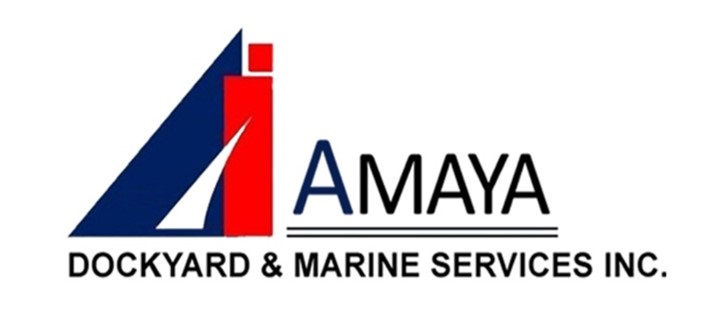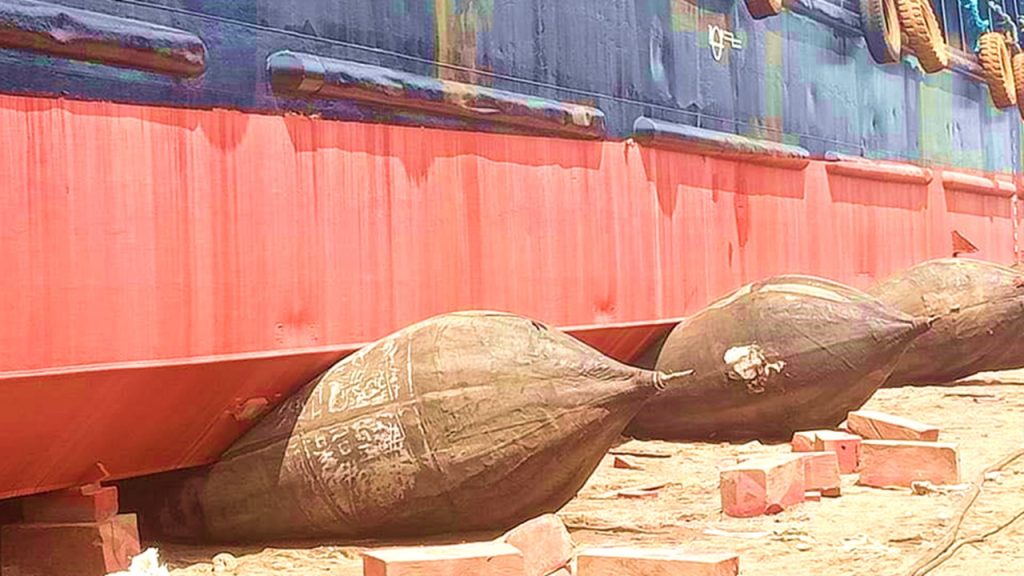When it comes to the smooth operation of a ship, one crucial aspect that cannot be overlooked is electrical maintenance. From power generation and distribution to ensuring the safety of passengers and crew, ship electrical systems play a vital role in keeping everything running smoothly at sea. However, with the complex nature of these systems and the harsh marine environment they operate in, proper maintenance becomes paramount. In this ultimate guide to ship electrical maintenance, we will delve into the key aspects of maintaining electrical systems on board ships, offering valuable insights and practical tips for ship owners, operators, and engineers alike. Whether you are new to the maritime industry or a seasoned professional looking for some expert advice, this comprehensive guide is your go-to resource for all things ship electrical maintenance in the Philippines.
Click here to read about our repair services.
The Importance of Ship Electrical Maintenance in the Philippines
Investing in ship electrical maintenance is crucial for ensuring the safety and efficiency of vessels in the Philippines. With the country being surrounded by vast oceans, a well-maintained electrical system is essential for smooth sailing and preventing potential disasters at sea. Regular inspections, testing, and maintenance of ship electrical systems can help identify any issues before they escalate into major problems.
One important aspect of ship electrical maintenance is ensuring compliance with international safety regulations. The International Maritime Organization (IMO) has set guidelines that govern the design, installation, and operation of electrical systems on ships. In order to comply with these regulations, regular inspections must be carried out to ensure that all equipment is functioning properly and meets the required standards. This not only helps prevent accidents but also ensures that ships are able to operate efficiently without any disruptions.
In addition to safety concerns, efficient ship electrical maintenance plays a vital role in reducing costs and minimizing downtime for vessels. A well-maintained electrical system allows for smooth operations on board, avoiding potential delays or breakdowns caused by faulty equipment or wiring issues. Regular inspections can detect any signs of wear and tear or potential failures before they become more serious problems. By addressing these issues proactively through proper maintenance procedures such as cleaning connections, tightening loose cables, or replacing worn-out components, ships can save valuable time and money in the long run.
Ship electrical maintenance is crucial for safe navigation at sea as well as maintaining operational efficiency.
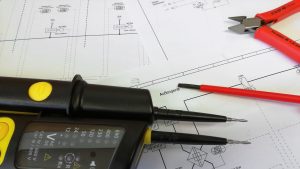
How Does Ship Electrical Maintenance Work in the Philippines?
Ship electrical maintenance in the Philippines requires a high level of expertise and precision. With ships being critical for transportation and trade, ensuring their electrical systems are functioning properly is paramount. In this guide, we will explore the intricate workings of ship electrical maintenance in the Philippines and shed light on some lesser-known aspects of this essential process.
One crucial aspect that sets ship electrical maintenance apart in the Philippines is the strict compliance with international regulations and standards. The International Maritime Organization (IMO) has set guidelines for electrical installations on ships, known as the International Convention for Safety of Life at Sea (SOLAS). The Philippines, being a signatory to SOLAS, follows these regulations to ensure that ships are safe, reliable, and efficient in terms of their electrical systems.
Additionally, ship electrical maintenance also involves periodic inspections and testing to identify any potential issues or abnormalities. This proactive approach helps prevent unforeseen breakdowns at sea, which could jeopardize both crew safety and cargo integrity. These inspections cover various components such as generators, distribution panels, motors, lighting fixtures, transformers, batteries, etc., ensuring each part meets certain criteria for operation.
Engaging professional technicians who have extensive knowledge not only in shipboard electrical systems but also in regulatory compliance is vital during these checks. Moreover, maintenance schedules should be diligently followed to keep up with routine inspections so that any malfunctioning or deteriorating equipment can be promptly addressed.
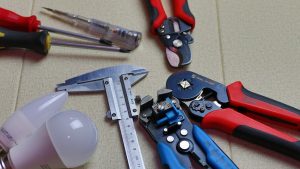
Understanding the Basics of Ship Electrical Systems in the Philippines
When it comes to ship electrical systems in the Philippines, understanding the basics is essential for ensuring smooth and reliable operations. In order to navigate through our archipelago, ships rely on an intricate network of electrical components that power everything from propulsion systems to navigation equipment. This complex system requires regular maintenance and repairs to ensure its efficiency and safety.
One key aspect of the ship’s electrical systems is the distribution panel, which serves as the central hub for controlling and distributing electricity throughout the vessel. It consists of various circuit breakers or switches that regulate the power supply to different sections of the ship. Understanding how this panel works and conducting regular inspections can help prevent potential hazards such as overloading or short circuits.
Additionally, knowledge of insulation testing is crucial in ship electrical maintenance. Insulation plays a vital role in protecting cables, machinery, and other components from electrical faults or damage due to moisture or age-related wear and tear. Regular insulation testing helps identify any weaknesses or deteriorations in insulation material so that necessary repairs can be carried out promptly.
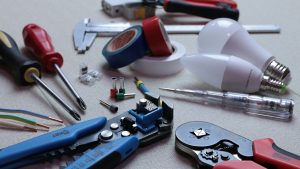
Essential Tools and Equipment for Ship Electrical Maintenance in the Philippines
Having the right tools and equipment is essential for ship electrical maintenance in the Philippines. Without them, it can be challenging to efficiently and effectively carry out inspections, repairs, and installations. Some of the must-have tools include cable testers, multimeters, insulation resistance testers, and thermal imaging cameras. These tools help in identifying electrical faults, conducting voltage measurements, checking insulation quality, and detecting hotspots, respectively. By utilizing these tools during regular maintenance checks or troubleshooting exercises on ships in the Philippines’ maritime industry, electrical engineers can save time and ensure the optimal performance of all electrical systems onboard.
In addition to these electronic testing devices, ship electricians also require a variety of hand tools such as wire cutters/strippers, crimping tools for terminal connections/joints; screwdrivers with insulated handles that provide protection against electric shocks, pliers for gripping wires/connectors tightly; nut drivers/drivers for fastening/loosening different types of screws/nuts etc. The presence of these versatile hand-held instruments ensures that ship maintenance personnel can effectively troubleshoot problems or repair electrical components that cannot be detected or resolved with electronic testing devices alone.
Moreover, since ships often encounter harsh environmental conditions at sea, including exposure to saltwater corrosion/deterioration effects resulting from excess moisture & humidity; it is necessary to use specialized cleaning equipment such as air compressors/blast guns along with corrosion-resistant products (e.g., rust inhibitors, anti-corrosion sprays) to protect and maintain the ship’s electrical systems.)
In addition to these tools, ship maintenance personnel also rely on a range of specialized safety equipment. Safety harnesses are essential for working at heights or in confined spaces, ensuring that workers are secured and protected from falls or accidents. Protective goggles shield their eyes from debris and spark while working with power tools, and heavy-duty gloves provide hand protection when handling sharp objects or working with corrosive chemicals.
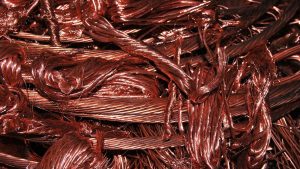
Common Electrical Issues on Ships and How Filipinos Can Troubleshoot Them
Filipinos play a crucial role in the global maritime industry, with many working as seafarers on board ships. As electrical systems are essential for the smooth operation of vessels, it is important for Filipino seafarers to be familiar with common electrical issues that may arise at sea and how to troubleshoot them effectively.
One of the most common electrical problems on ships is faulty wiring. This issue can lead to equipment malfunctions, power outages, and even fires if not addressed promptly. To tackle this problem, Filipino seafarers should always conduct regular inspections of wiring connections and ensure they are properly grounded. They must also be skilled at using multimeters and other testing equipment to detect any abnormalities in current flow or resistance.
Another frequent issue faced by sailors is battery failure. A ship relies heavily on its batteries for various purposes, such as starting generators and emergency backup power. Filipinos must be knowledgeable about battery maintenance techniques, including checking electrolyte levels, cleaning terminals, and ensuring proper ventilation in battery rooms. Additionally, understanding charging procedures is crucial to prevent overcharging or undercharging batteries, which can significantly reduce their lifespan.
By equipping themselves with knowledge of common electrical problems on ships and troubleshooting techniques, Filipino seafarers can contribute to safer navigation experiences for all crew members while reducing downtime caused by electrical issues onboard.

Importance of Regular Inspections and Preventive Maintenance in the Philippines
Regular inspections and preventive maintenance play a crucial role in ensuring the smooth operation of ships in Cavite, Batangas, Subic Port Zambales, Cebu, Navotas, and Manila. With thousands of vessels navigating through its waters every day, it is essential to prioritize safety and efficiency by conducting routine checks and addressing potential issues before they become major problems.
One of the most significant advantages of regular inspections is identifying and rectifying minor electrical faults or malfunctions before they escalate into serious hazards. By regularly inspecting electrical systems, ship owners can detect issues such as loose connections, faulty wiring, or worn-out components. Addressing these problems promptly not only eliminates immediate risks but also prevents costly breakdowns or accidents that may result in downtime and vessel repairs.
Furthermore, preventive maintenance helps extend the lifespan of ship electrical systems. Regular cleaning, lubrication, and alignment contribute to their optimal performance while minimizing wear and tear. Timely replacement of worn-out parts also ensures that equipment continues to function efficiently without compromising safety standards. Considering the harsh maritime environment with exposure to saltwater corrosion and extreme weather conditions, a proactive approach towards maintenance becomes even more critical for ships operating in the Philippines.
Regular inspections and preventive maintenance are vital for ensuring safe operations and prolonging the service life of ship electrical systems in the Philippines.
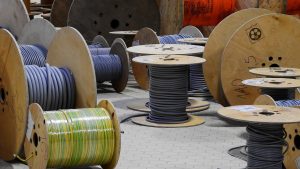
Best Practices for Preventative Maintenance on Vessels in the Philippines
One of the best practices for preventative maintenance on vessels in the Philippines is to inspect and clean electrical components regularly. This includes checking for loose connections, corrosion, and insulation damage. By conducting routine inspections, ship owners and operators can identify any potential issues before they become major problems.
Another crucial aspect of preventative maintenance is keeping detailed records of all maintenance activities. This allows for better tracking of repairs and replacements, ensuring that no essential tasks are overlooked or forgotten. Additionally, having comprehensive records can be beneficial during audits or inspections by regulatory authorities.
It is also recommended to establish a regular testing schedule for critical equipment such as emergency generators and navigational systems. Performing periodic tests ensures that these vital systems function properly when needed most. By staying proactive with preventative maintenance practices, ship owners in the Philippines can minimize downtime, reduce costly repairs, and enhance overall vessel safety.

Regular Inspections and Testing Procedures
Regular inspections and testing procedures are essential for ensuring the safety and functionality of ship electrical systems. These procedures involve a comprehensive evaluation of the entire system, from cables to circuit breakers, to identify any potential issues or areas that require maintenance. By conducting regular inspections, ship owners and operators can prevent costly breakdowns and ensure compliance with safety regulations.
One important aspect of regular inspections is testing the insulation resistance of cables. Over time, cables can deteriorate due to factors like moisture or wear and tear. By regularly testing the insulation resistance, technicians can detect any degradation in the cable insulation before it becomes a more serious problem. This not only helps in preventing short circuits but also ensures that electrical systems remain efficient and reliable.
In addition to cable insulation testing, regular inspections should also include visual inspections of circuit breakers and other components. Visual inspections allow technicians to identify signs of overheating or damage that may otherwise go unnoticed until a failure occurs. By spotting these issues early on, necessary repairs can be made promptly, preventing further damage to vital electrical equipment.
Regular inspections and testing procedures are crucial for maintaining the safety and reliability of ship electrical systems. With proper monitoring and maintenance protocols in place, ships can operate smoothly without facing unnecessary downtime or costly repairs due to negligence. It is important for ship owners and operators in the Philippines to prioritize these procedures as part of their overall maintenance strategy.

Are You Looking for a Ship Electrical Maintenance in the Philippines?
When it comes to ship electrical maintenance in the Philippines, Amaya Dockyard & Marine Services Inc. in Tanza, Cavite, stands out as a reliable and trusted provider. With their years of experience in the industry, they have built a reputation for delivering quality and cost-effective services to their clients.
- Email us: info@amayadockyard.com
- Call our 24-hour hotline: +63 917 633 0479
- Viber: +63 917 633 0479
- WhatsApp: +63 917 633 0479
- Facebook Messenger: Click here
- Click here to inquire
What sets Amaya Dockyard & Marine Services Inc. apart is their team of skilled Filipino electrical engineers and technicians who are well-versed in all aspects of ship electrical maintenance. They understand the importance of ensuring that all electrical systems on board are working efficiently and safely, as any malfunction can lead to serious consequences at sea.
Amaya Dockyard & Marine Services Inc. not only offers routine maintenance checks but also provides comprehensive repair solutions for any issues that may arise with your ship’s electrical systems. Their dedication to providing top-notch service, combined with their commitment to using high-quality materials, makes them a preferred choice among ship owners looking for reliable electrical maintenance services in the Philippines.
Whether you need assistance with troubleshooting an electrical problem or require regular inspections and preventive maintenance, Amaya Dockyard & Marine Services Inc. has got you covered. By entrusting your ship’s electrical maintenance needs to their capable hands, you can rest assured knowing that your vessel will be operating at its best while complying with international safety standards.
Ensuring Safety During Ship Electrical Maintenance in the Philippines
When it comes to ship electrical maintenance, ensuring safety should always be a top priority. In the Philippines, where a significant number of maritime activities take place, this is particularly crucial. The high risks associated with working on electrical systems aboard ships cannot be ignored. Therefore, strict adherence to safety protocols and guidelines is essential.
One of the key considerations for ensuring safety during ship electrical maintenance in the Philippines is proper training and certification for personnel involved in the process. It is imperative that all individuals tasked with carrying out electrical maintenance on board ships have received adequate training and hold relevant certifications. This ensures that they possess the necessary knowledge and skills to handle potentially hazardous situations and tackle any issues that may arise.
Another vital aspect of maintaining safety during ship electrical maintenance in the Philippines is conducting regular risk assessments. These assessments help identify potential hazards associated with specific tasks and determine appropriate control measures to mitigate them effectively. By proactively identifying risks, steps can be taken to implement precautionary measures such as using personal protective equipment (PPE), isolating hazardous areas, or implementing lockout/tagout procedures when working on live systems.
By prioritizing safety through proper training, certification, and regular risk assessments, ship owners and operators can ensure a safe work environment during electrical maintenance activities onboard vessels in the Philippines. Safeguarding both personnel from harm and expensive assets from damage should always be at the forefront of every shipping operation’s operational goals.
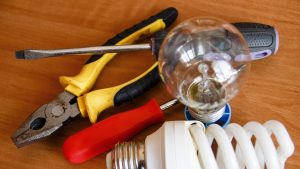
What Happens if a Boat’s Electrical is Not Properly Maintained?
When a boat’s electrical system is not properly maintained, it can lead to a host of problems that can impact both the safety of those on board and the overall functionality of the vessel. One common issue that arises from neglecting electrical maintenance is the increased risk of electrical fires. Loose connections, damaged wiring, and overloaded circuits can create sparks or generate excessive heat, which can easily ignite flammable materials on board.
Another consequence of inadequate electrical maintenance is the potential for power failures. An unreliable electrical system may cause sudden blackouts while at sea, leaving passengers stranded in darkness without essential navigation and communication equipment. This can be incredibly dangerous in emergency situations when quick responses are necessary.
Furthermore, neglecting electrical maintenance can result in costly repairs. Regular inspections and upkeep help detect problems early on before they escalate into larger issues that require extensive troubleshooting or part replacements. By investing time and resources into proper maintenance, boat owners ensure their vessels remain in top working condition and avoid unnecessary expenses down the line.
Failing to maintain a boat’s electrical system poses significant risks to safety, functionality, and finances. Taking proactive measures such as regular inspections, cleaning terminals regularly to prevent corrosion buildup, and promptly addressing any issues will help ensure a smooth sailing experience while minimizing hazards in the Philippine Sea.
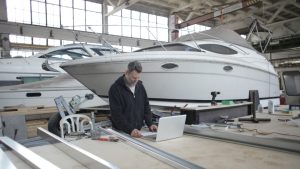
Final Thoughts: Ship Electrical Maintenance: Philippines’ Ultimate Guide
In conclusion, ship electrical maintenance is a crucial aspect of ensuring safe and efficient operations at sea. It requires a comprehensive understanding of electrical systems, as well as the ability to diagnose and resolve issues in a timely manner. The Philippines’ ultimate guide on ship electrical maintenance provides valuable insights into best practices and industry standards.
One key takeaway is the emphasis on regular inspections and preventive maintenance. By proactively identifying potential problems, shipowners can save time and money and avoid costly breakdowns while at sea. Additionally, the guide highlights the importance of trained personnel who are knowledgeable in electrical systems to carry out these tasks effectively.
Another important aspect highlighted in the guide is the need for proper documentation and record-keeping. This not only ensures compliance with maritime regulations but also helps track maintenance history, identify patterns or recurring issues that may require further investigation or improvement.
By following this ultimate guide on ship electrical maintenance in the Philippines, shipowners can optimize their operations and reduce downtime by taking proactive measures to ensure their vessels are in top condition, with a focus on preventive maintenance, trained personnel, and proper documentation practices.
